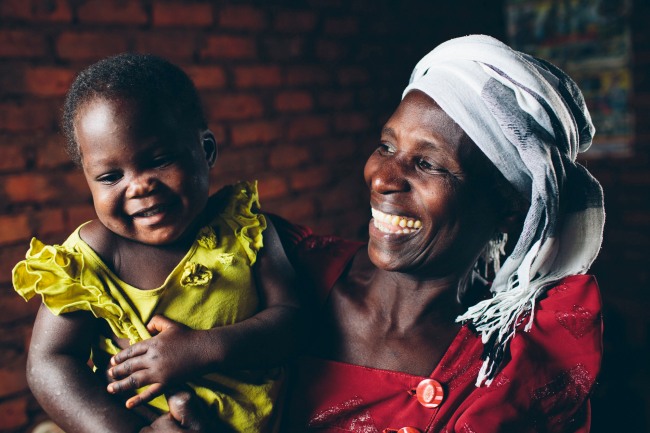Photos by: Bobby Neptune {as always thanks for capturing these families we love so well}
Moms die in child birth. Moms die of HIV/AIDS. Mothers go “mad” as they say here and leave their babies with family who can’t afford their care. Mothers leaving the picture, in some fashion, has much to do with nearly every case we’ve worked with.
Moms, we need you.
It is heartbreaking when you are unable to raise your kiddos, but we know the ability a child has to grow up in her family does not end with you.
The extended family is STRONG. Overburdened? Often. But strength and resiliency is not something they lack.
While Grandmothers are not the only members of the extended family we have seen take in children through kinship care, some of our most successful resettlements have been to Grandmothers.
We want you to continue celebrating other forms of adoption. We know and have seen how beautiful this response is when a child does not have a family to love and care for them. We just ask that you celebrate also, these unsung heroes with us.
Kinship care can and should be the answer for the majority of children living in institutions in this country.
We tend to forget that this is a form of adoption.
That this is a much more common form of adoption in which we can tap into to help us empty orphanages + get kids in families. A form of adoption that doesn’t cost us $20,000+ and a few 10,000 mile flights to and from.
One that won’t force us to tell our children, when they get old enough, that their birth families loved them but were unable to provide for them.
And here is the beauty in working toward kinship care for kids in orphanages or children at-risk to enter orphanages- It gives us this really neat opportunity to stand beside entire families, as we work toward providing the resources and services they need to keep their children at home.
We don’t get to hear about it enough and maybe that’s why we forget about it.
These adoptions don’t get blog posts, fundraisers or really emotional videos made about them. They just happen, naturally, within families and communities here.
So while we get to know a lot about the complexities and challenges involved in international adoption and why children are presumably “Stuck” in orphanages, we don’t hear the voices of biological families explaining the challenges they have faced in trying to raise their children, the barriers that exist within systems {or lack thereof}, why families have chosen to place their child in an orphanage and potentially why they are contemplating giving the child up for adoption.
Hearing from this side is important. I believe that, in listening to these voices, we will have no choice but to start shifting the focus of Orphan Care in Uganda.
And by listening we will hear that families aren’t, so much of the time, offered serious alternatives.
We will be reminded that “total orphan” is not a qualifier, in and of itself, for a child to be adopted internationally.
If we look, we will find families ready and willing to stand in the gap for their grandchildren + nieces/ nephews, given the proper supports.
I’ve seen, too often, the extended family bypassed as an option for children without a mom or dad to care for them. International adoption and a future in America is put on the table + it’s sold. It’s sold really well.
We make assumptions that, through adoption by us, we are lifting a burden from these families. That another kid would have been too much of a strain. That of course this poor family in the village is just waiting for us to swoop in and offer to take their grandchild, niece or nephew away, forever.
We don’t take the time to get to know their hearts + desires. We gloss over their strengths and amazing ability to raise children and rationalize adoption because of their current socioeconomic status.
So this a reminder: Let’s not forgot that kinship care is still adoption. That these stories are still beautiful and should be celebrated. That adoption, whatever it looks like, is part of God’s heart and that while we advocate for children without family who love them to be adopted outside of the family, we should be fighting equally as hard to keep children who do have families that love them, in these families.
-Kelsey

